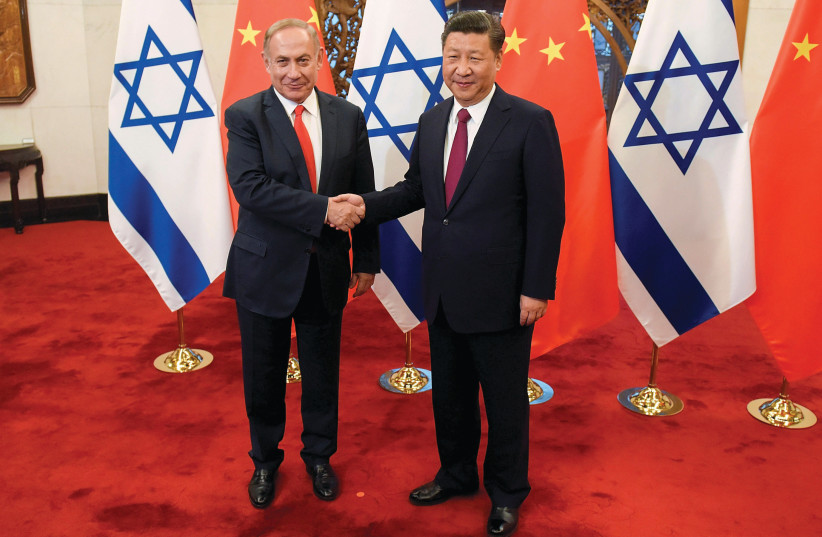Israel, whose foreign currency reserves have traditionally been made up of Dollars, Euros and British Pounds, will add four new currencies – including the Chinese Yuan (RMB).

Israel has added four new currencies – including the Chinese Yuan (RMB) – to its central bank holdings for the first time in the country’s history, Bloomberg reports. Israel’s Central Bank will also trim US Dollar (USD) and Euro holdings in a bid to diversify their foreign reserves.
Israel’s foreign currency reserves, which last year exceeded $200 billion for the first time, have traditionally been made up of USD, Euro and British Pound (GBP) holdings. Israel will now include Canadian dollars and Australian dollars in their foreign currency reserves, as well as the Japanese Yen and the Chinese Renminbi.
Deputy Governor Andrew Abir called the reshuffle a change in Israel’s “whole investment guidelines and philosophy,” adding that the rise in Israel’s foreign exchange reserves forced the Central Bank to consider “the need to earn a return on the reserves that will cover the costs of liability.”
The Central Bank, which as recently as 2020 held 67.4% of its foreign exchange in USD, 30.1% in Euros and 2.5% in British Pounds, now plans to have the British Pound and Japanese Yen account for 5% each. The Chinese Yuan will account for 2% of their holdings, while the currencies of Canada and Australia will weigh at 3.5% each.
A reduction in USD and Euro holdings is planned in order to make room for the new reserves being held. USD holdings will go from 66.5% in 2021 to 61% – a roughly 8.3% reduction – while Israel’s Euro holdings will be reduced from 30.8% to 20% – a staggering 35% decline in investment.

Chinese Yuan and “De-Dollarization”
China has pushed for a larger role in the foreign exchange sphere for their currency, the Chinese Yuan Renminbi – with limited success. International Monetary Fund data shows that the RMB’s share of global currency reserves rose to a record 2.79% by the end of 2021 – though efforts to expand RMB holdings have been met with criticism of the Chinese government’s tight regulation, limits on exchange and accusations of currency devaluation.
Amid a barrage of sanctions placed on Russia to cripple their economy as they invade neighboring Ukraine, numerous countries have grown weary of the risks involved with a USD-based global economy in what is being called a potential “de-dollarization” – potentially forging a path for the Yuan to grow in international importance.
While Japan, South Korea and Singapore imposed sanctions on Russia, the Philippines, a US treaty ally, has decided to proceed with its purchase of 17 Russian military transport helicopters worth $249 million in March. While China has faced criticism for not formally condemning Russia’s invasion of Ukraine nor imposing sanctions, prominent countries such as India – a major US ally – have declined to formally condemn the invasion or impose sanctions on Russia.
India, Russia’s largest military trading partner, said they would set up a rupee-ruble exchange mechanism to settle Russian arms sales to India to avoid sanctions under Countering America’s Adversaries Through Sanctions Act (CAATSA) in a March interview with CNBC.
China, which developed its own alternative to the SWIFT banking system in 2015, was exploring a joint alternative to SWIFT with Russia and India as early as 2019, according to The Economic Times. Russian banks were disconnected from SWIFT shortly after Russia’s invasion in late February.
Content retrieved from: https://www.jpost.com/business-and-innovation/banking-and-finance/article-704813.